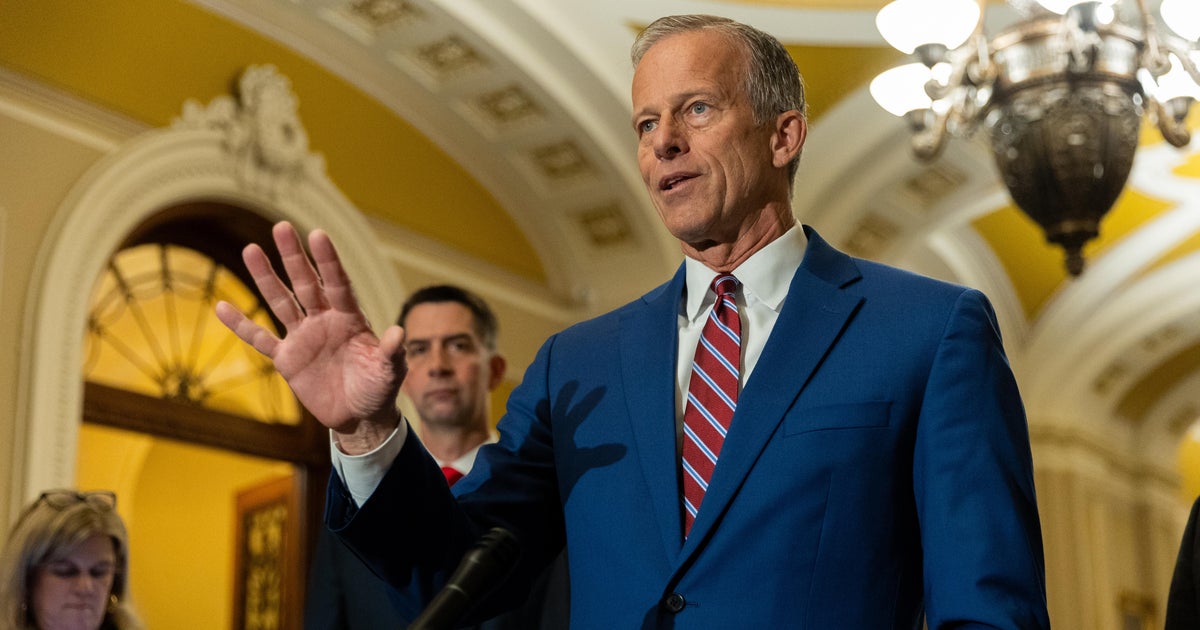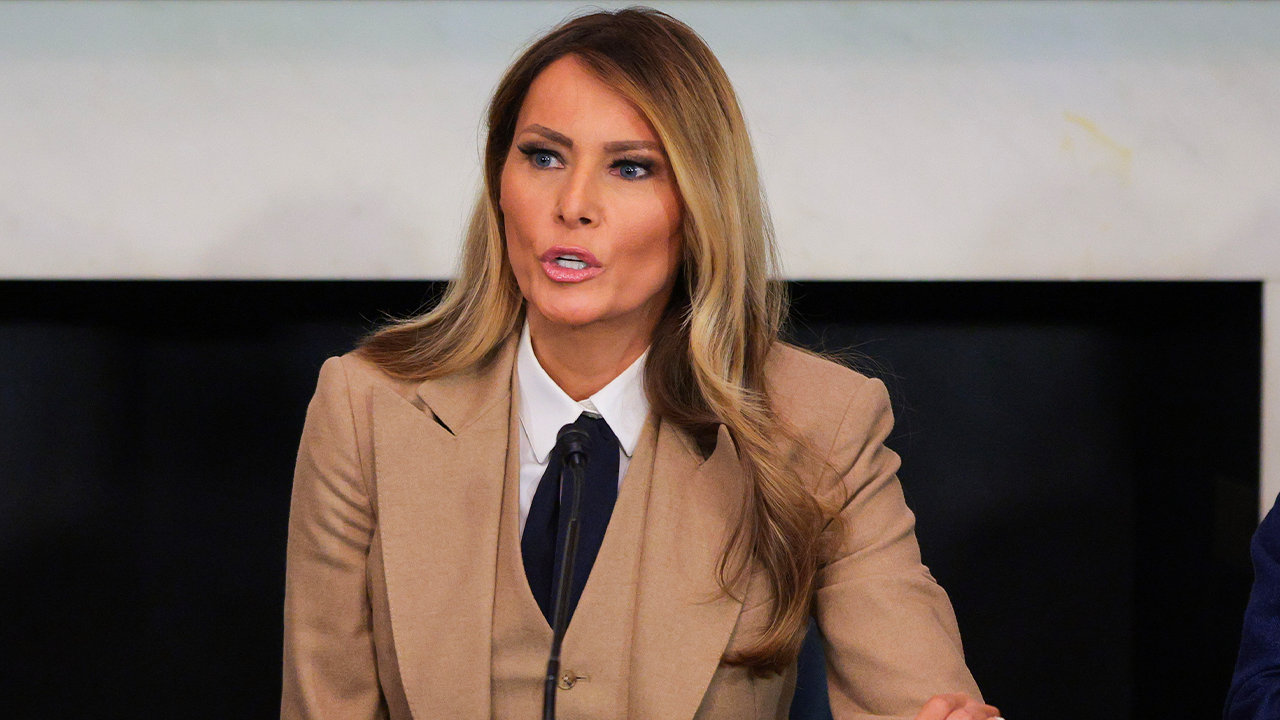World
Russian occupiers rule Ukraine’s nuclear plant through force, fear: Sources
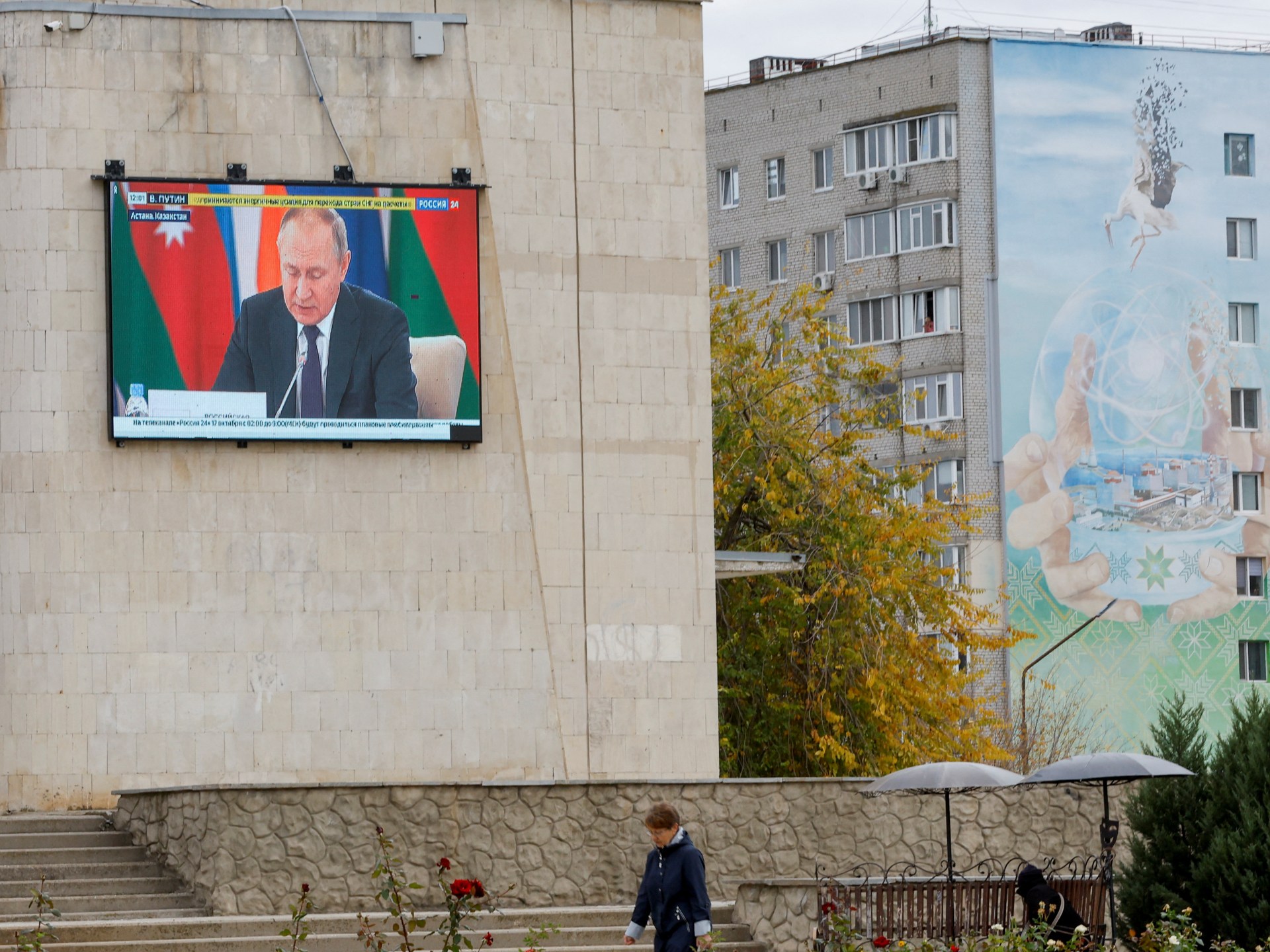
On the eighth day of Russia’s war in Ukraine, March 3, 2022, for the first time in history, an operating nuclear station was taken over militarily.
“We couldn’t believe it,” an engineer who worked at the Zaporizhzhia nuclear power plant told Al Jazeera.
“We completely denied it, one can’t just seize a nuclear station, it’s the safest place on the planet.”
On that fateful Friday, sirens that sounded like wounded animals wailed endlessly, and shells flew in the night sky.
During Moscow’s efforts to seize the power station, which once produced a fifth of Ukraine’s electricity, two Russian tanks barraged the station’s walls with bloodcurdling thuds.
Ukrainian security staffers yelled into a bullhorn for hours to “stop bombing a nuclear site”.
A fire erupted at a station’s training centre and dark plumes of smoke blanketed the forest around the company town, Enerhodar.
Horrified residents began building barricades and blocking entrances into their apartment buildings as armed fighters ran around the town of about 51,000 people.
For this story, Al Jazeera interviewed two engineers and another resident who have since fled Enerhodar but regularly keep in touch with old neighbours and colleagues there.
Amid the takeover, luckily, reactors and spent fuel storage were not hit and radiation levels didn’t spike because Russian “experts consulted these a******s on where they can shoot and where they can’t,” one of the engineers said, referring to pro-Russia Ukrainians.
The worst he and his colleagues feared was a replay of the 2011 Fukushima nuclear disaster.
Encased in protective zirconium, uranium fuel heats the reactor and a water coolant that turns into steam, rotating turbines and generating electricity.
But the casing can melt at a high temperature and start a “para-zirconium reaction” that turns each gram of water into several cubic metres of highly flammable hydrogen.
“Once it has begun, you can’t stop in, it will keep heating up, will heat up itself until everything is blown to freaking pieces,” one of the engineers said.

Thousands have since left Enerhodar.
Al Jazeera reported on Wednesday on the feared Chechen unit which polices the occupied Ukrainian nuclear town.
The technicians that signed up to work under Russian occupiers were well rewarded, one of the engineers said, claiming those who remained received two salaries in two currencies – for doing one job for a period.
The occupiers paid workers in the Russian rouble, while they still received the hryvnia from Ukraine’s state nuclear company Energoatom – until it found out about their “volunteer collaboration”, fired them, and stopped transferring wages.
“They felt just like sheikhs,” one of the engineers said.
“All the ladies started getting beauty injections, or doing things they could spend a lot of money on, something you could buy right now.”
The words seem more apt to depict a boomtown amid a gold rush and seem light years away from the realities of the Russian-Ukrainian war – and especially the life in the potential epicentre of a nuclear disaster.
‘The main danger will be new Russian attacks’
In the days and weeks that followed the takeover, Moscow deployed hundreds of servicemen and Chechen national guardsmen to the station.
They arrived with multiple rocket launchers, armoured vehicles, landmines and other weaponry often placed between the station’s blocks or in Soviet-era bunkers.
The Russians shelled Kyiv-controlled areas with impunity knowing Ukrainian forces wouldn’t hit back.
Moscow’s troops wanted to redirect the flow of electricity from Europe’s largest nuclear station to energy-starved Crimea.
But their attempts failed because of damage to high-voltage lines and a Crimean electrical substation, and the complexity of synchronising the station’s output with the Russian power grid.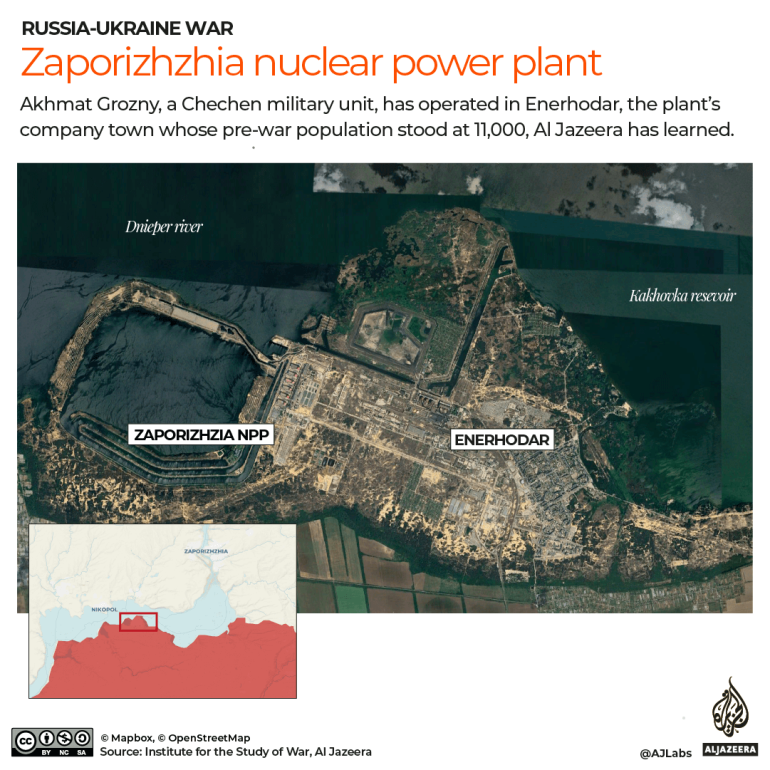
Because of safety concerns, all of the station’s six reactors have been shut down amid the war.
Most Ukrainians nationwide live in apartments with central heating systems, but as Moscow launched hundreds of cruise missiles and drones this past winter on critical infrastructure, they were deprived of heat, power and water.
The power deficit that led to blackouts and rationing has gradually been compensated by bolstered operations at three other nuclear power stations – and a twofold drop in Ukraine’s industrial production, Oksana Ishchuk, executive director of the Center for Global Studies Strategy XXI, a think tank in Kyiv, told Al Jazeera.
In the coming winter season, when central heating will be badly needed, Ukraine will make do without the power generated by the Zaporizhzhia station, she said, but warned that “the main danger will be new Russian attacks on critical energy infrastructure facilities”.
Money and ‘heroism’
Even though the Zaporizhzhia station does not generate electricity, thousands of staffers are still needed there to monitor its infrastructure and the constant cooling of the reactors.
Aided by Russian servicemen and intelligence officers, Enerhodar’s Moscow-installed “administration” tried sticks and carrots to keep 11,000 Ukrainian staffers at work.
The stick involved abduction, detention and torture, according to Ukrainian officials and employees of the plant.
Even so, “Ukrainians at the power station act with dignity and refuse to cooperate,” Energoatom, a state-run conglomerate in charge of Ukraine’s four nuclear power plants, said in May.
Some workers disappeared without a trace as unmarked graves began dotting the forest.
Hundreds more allegedly spent days, weeks or months in overcrowded cells, sleeping in shifts.
Sometimes, a detainee agreed to falsely “confess” in “directing Ukrainian artillery fire” or “spying” in return for freedom and “clemency”, one of the engineers said.
“You memorise the text, then say it on camera. They release you … Then they publish [a story in pro-Kremlin media outlets] that you are so horrible, but they’re so generous.”

Several, however, agreed to cooperate, because of the carrot – hefty salaries.
Some justified staying by claiming they were “responsible for nuclear safety” one of the engineers said ironically, “that while they’re there, they won’t allow any lawlessness to happen, that they stayed on like heroes”.
And then, there are the pro-Russian Ukrainians.
The older ones feel nostalgic about their Soviet-era youth, others support the Kremlin’s narrative and hold Kyiv responsible for instigating the war.
But their alleged “collaboration” goes beyond simply acceptance of Moscow’s viewpoint.
“They snitch on pro-Ukrainian neighbours, report those who left [the occupied areas] so that Russians can rob their apartments or move in there,” a fugitive Enerhodar resident whose pro-Russian parents stayed behind, told Al Jazeera.
Some 3,500 staffers, or about one in three, are understood to have signed contracts with the Russian state nuclear company Rosatom.
‘A gift of energy’
Enerhodar, whose name means “a gift of energy,” used to be one of Ukraine’s most affluent towns.
Residents had access to quality healthcare, enjoyed discounted trips to the seaside, attended theatre festivals and music shows, and sent their children to sports schools, including a boxing school that produced several national champions.
The bravest ones even enjoyed year-round swimming in two ponds whose water cooled the reactors and never froze in winter.
The ponds were home to tilapia and Asian catfish introduced for “sanitary purposes” – to eat algae and secure the cleanliness of turbines.
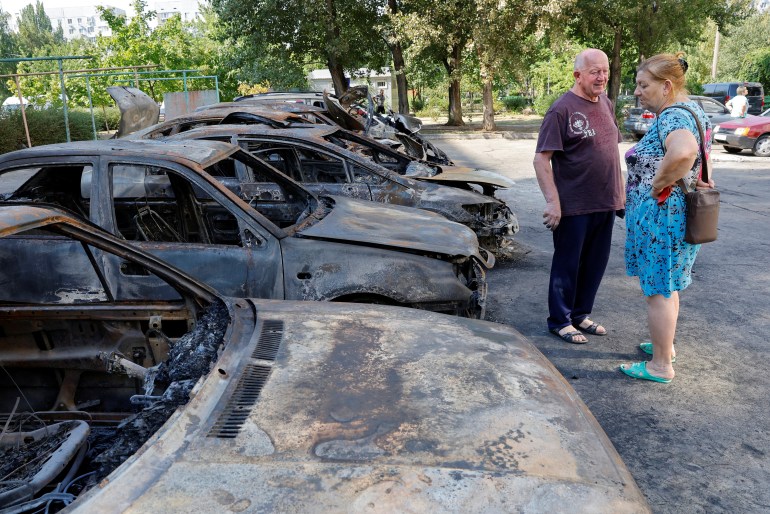
The staffers’ incentives were not just monetary.
The importance of nuclear generation rose after the 2014 separatist uprising in the Donbas that largely deprived Ukraine of access to coal for thermal stations.
Two years ago, the station’s reactors were retrofitted and modernised, and churned out electricity at maximum capacity.
“There was plenty of work, but we understood how important it all was,” one of the engineers said.
After the Russian takeover, the town deteriorated.
Residents spent hours in bread lines amid food shortages.
A couple of months later, Moscow-appointed authorities began shipping substandard, pricier foodstuffs from Crimea.
Local entrepreneurs also bootlegged and sold it – along with cigarettes, alcohol and medical drugs – from the boots of their cars.
However, the station’s staffers who agreed to work with Rosatom had plenty of money – especially the older, retired ones who collected pensions and salaries from Kyiv and Moscow while continuing to work.
Russian servicemen and separatists from Donbas allegedly drank too much, and the Moscow-installed “authorities” banned the sale of alcohol, a step that triggered the production of homemade moonshine.
The new lifestyle felt like a throwback to the early 1990s when the newly independent Ukraine adapted to a market economy.
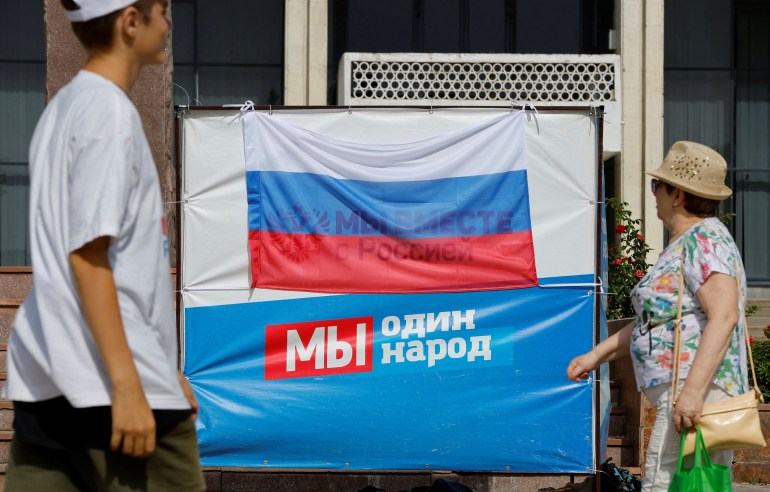
Economically, the situation was even worse than the gradual separation of the rebel-controlled “People’s Republics” in the Donbas.
“The turnover of goods and money is being reoriented towards Russia as there is no communication with Ukraine-controlled areas,” Kyiv-based analyst Aleksey Kushch told Al Jazeera.
The occupation even led to small environmental disasters.
Because the now shut-down reactors no longer produce warm water, the tilapia and Asian catfish in the cooling ponds died and washed ashore.
Then some of the bored occupants began racing their cars on the artificial hills made of soot and other waste from Enerhodar’s thermal power station.
The races cause highly toxic dust to rise and pollute the air, Enerhodar’s exiled Mayor Dmytro Orlov said in mid-July.
A narrow escape
As fighting intensifies, leaving Enerhodar for Kyiv-controlled areas has become next to impossible.
Russian forces have been accused of shelling cars with civilians, blaming their deaths on Ukraine, and supplying lists of the most essential staffers to checkpoints.
Al Jazeera was unable to independently verify these claims. Throughout the war, Moscow has denied targeting civilians.

“The departure is maximally complicated and sometimes it’s simply impossible to leave the occupied areas, especially without money,” one of the engineers said.
He managed to leave by the narrowest of margins.
The man and his family drove via Russia-occupied areas, including the nearly destroyed city of Mariupol, which resembled “pure hell”.
“People sit and drink coffee, the sign [on the building’s] first floor says, ‘a lounge cafeteria,’ but the rest of the building is black, and there are no more floors left,” he said describing a drive through downtown Mariupol.
They entered the southern Russian city of Rostov-on-Don one day before the Wagner mercenary company briefly seized it on May 23.
Then they drove north and west to enter the European Union after an exhausting, hours-long interrogation by Russian intelligence officers, and finally crossed back into Ukraine.
Still on Energoatom’s payroll, the engineer is settling in Kyiv but is ready to leave for Enerhodar once the Russians are pushed out or retreat the way they had left several occupied areas last year.
He compares his rapid-response crew to paratroopers that must move fast to retake the station and prevent a disaster.
“The situation will be critical,” he said.

World
CBS News President McMahon to Step Down, Memo Shows
World
Trump says Russia, Ukraine to start ceasefire negotiations after Putin call
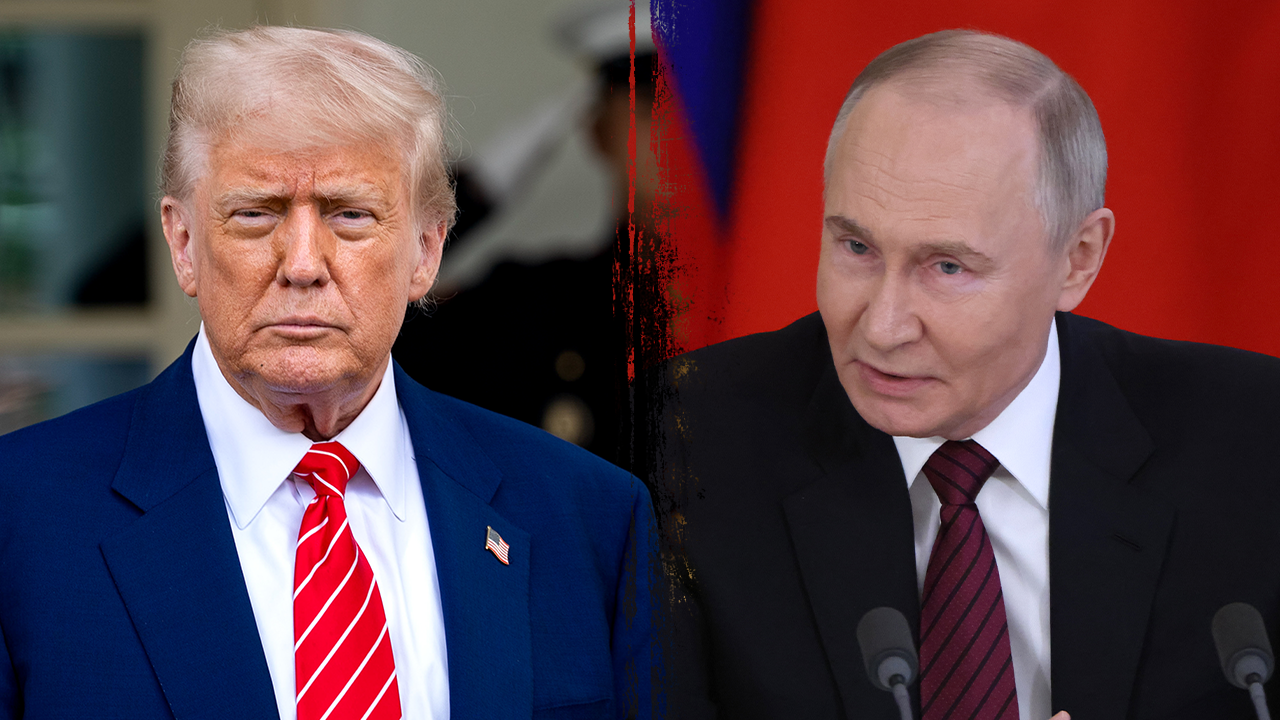
President Donald Trump and Russian President Vladimir Putin held a 2-hour call on Monday in what the U.S. said was a push to get Russia to end its deadly war in Ukraine.
Both Trump and Putin described the call in a positive light, with the Kremlin chief saying it was “frank” and “useful,” but it is not immediately clear what results were achieved.
Trump took to social media to praise the call as having gone “very well” and said, “Russia and Ukraine will immediately start negotiations toward a Ceasefire and, more importantly, an END to the War.”
RUSSIA BOMBARDS UKRAINE WITH DRONES HOURS AFTER TRUMP ANNOUNCES TALKS WITH PUTIN
FILE – In this June 28, 2019, file photo, President Donald Trump, right, shakes hands with Russian President Vladimir Putin, left, during a bilateral meeting on the sidelines of the G-20. (AP Photo/Susan Walsh, File)
“The conditions for that will be negotiated between the two parties, as it can only be, because they know details of a negotiation that nobody else would be aware of,” he added.
Putin, in a statement after the call, also noted that “a ceasefire with Ukraine is possible” but noted “Russia and Ukraine must find compromises that suit both sides.”
Any concrete details on the nature of these compromises remain unclear, despite negotiation attempts in Turkey on Friday, which Trump suggested failed because he needed to negotiate with Putin first.
The ceasefire talks fell through after a Ukrainian delegation said it was presented with demands from the Russian delegation that were “unacceptable,” including reported calls for the complete removal of Ukrainian troops from four Ukrainian regions that Russian illegally annexed in 2022, including Kherson, Donetsk, Luhansk and Zaporizhzhia.
ZELENSKYY SPEAKS WITH TRUMP, ALLIES AFTER RUSSIA PEACE TALKS BROKER NO CEASEFIRE
The Russian delegation also allegedly demanded that the international community not only recognize the regions as now Russian, but cease aid to Ukraine, including plans to supply peace-keeping troops once the fighting concludes.
Trump said he immediately alerted not only Ukrainian President Volodymyr Zelenskyy to the call, but also EU leader, President of the European Commission Ursula von der Leyen, French President Emmanuel Macron, Italian Prime Minister Giorgia Meloni, German Chancellor Friedrich Merz and Finnish President Alexander Stubb – none of whom immediately responded to Fox News Digital’s requests for comment, nor have they pubically made statements about the call.
Trump also said that “the Vatican, as represented by the Pope, has stated that it would be very interested in hosting the negotiations.”
“Let the process begin,” he added, though negotiations between Ukraine and Russia, mediated by the U.S., began months ago in March.
The Vatican also did not immediately respond to Fox News Digital’s questions.
World
Digitisation fronts new Commission strategy to boost EU single market
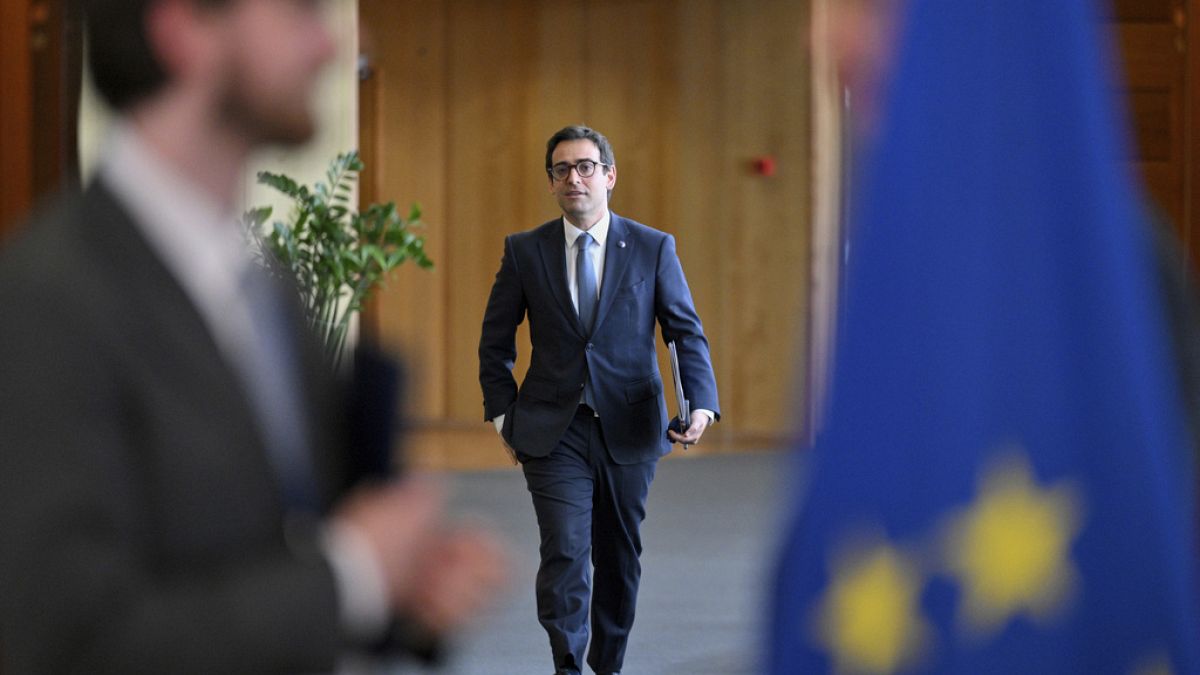
Efforts to promote digitisation of the single market underpin a new strategy to breathe life into the project set to be presented by EU Commissioner Stéphane Séjourné on Wednesday, according to a draft seen by Euronews.
The plan sets out six pillars for improvement of the single market and refers to the context of a global trade crisis.
The Commission wants to remove ten “terrible” market barriers that currently “negatively impact trade and investment”, boost European services markets that bring the highest economic value, relieve the burden on SMEs, digitize administration, and push member states to address administrative barriers on national level.
A separate Single Market Omnibus proposal set to be published on Wednesday alongside the strategy will be designed to cut red tape for SMEs and mid-cap firms, promising to shift the sector “from a document to a data-based single market”.
Fragmented IT systems, and a lack of data exchanges make it difficult for businesses to comply with regulatory requirements, the Commission text claims, stressing the need to move from “exchanging paper documents towards exchanging digital data.”
It proposes making a so-called Digital Product Passport (DPP) compulsory and allowing companies to disclose and share product information – including conformity documentation, manuals, safety and technical information – across all new and revised product legislation.
The first DPP, for batteries, is expected to become operational in 2027 under the plan and the tool will be rolled out to other product categories. This will “result in swift cost reduction for both economic operators and authorities,” the text says.
Further digitisation efforts include promoting digital invoicing, which currently has a low uptake across the bloc. The Commission will table a proposal late next year for it to become the mandatory standard for public procurement.
The strategy also envisages modernising the current framework of product rules determining what may be placed on the market, which it says need “improvement”, through planned reforms slated for the second quarter of next year.
A spokesperson for European consumer group BEUC told Euronews that current rules don’t adequately address “the many challenges brought by e-commerce”, resulting in unsafe products entering the EU market via online marketplaces.
High-level political meeting to target services
The strategy will target promotion of services across the single market and the document stresses regulations in member states which it claims currently restrict access to around 5,700 services activities.
It proposes addressing this by harmonising authorisation and certification schemes for providers of services across the single market, and through new rules to make it easier for highly skilled workers to temporarily provide services cross-border. The European social security pass will also be deployed and enable the digital verification of social security rights.
In addition, a legislative proposal will target territorial supply constraints imposed by large manufacturers which hinder retailers buying products in one member state from reselling in another.
The strategy proposes that member states’ governments appoint so-called “Sherpas for the Single Market” to operate within in their prime minister’s or president’s office, to take charge of promoting the application of the rulebook.
To strengthen an existing Single Market Enforcement Taskforce – a group which brings member states’ authorities together with and the Commission – the EU executive proposes staging an annual high-level political meeting of EU ministers, the national “sherpas” of the single market, as well as Séjourné to provide strategic and political guidance to the taskforce. A first high-level political meeting should take place at the end of the year.
The omnibus package presented Wednesday should also improve standardisation which remains too slow according to the EU executive by allowing the Commission to establish common specifications. The aim is also to strengthen the EU’s role as a global standard-setter. A review of the standards regulation will also be announced.
EU lawmaker Sophia Kircher (Austria/EPP) told Euronews that services and capital market sectors are currently suffering from the lack of harmonisation. “National differences in regulations slow down our SMEs in particular when they want to operate across borders,” Kircher said.
-

 Austin, TX1 week ago
Austin, TX1 week agoBest Austin Salads – 15 Food Places For Good Greens!
-

 Politics1 week ago
Politics1 week agoPresident Trump takes on 'Big Pharma' by signing executive order to lower drug prices
-

 News5 days ago
News5 days agoAs Harvard Battles Trump, Its President Will Take a 25% Pay Cut
-

 Technology1 week ago
Technology1 week agoMexico is suing Google over how it’s labeling the Gulf of Mexico
-

 Business1 week ago
Business1 week agoIn-N-Out Burger adds three new California locations to list of 2025 openings
-

 Politics1 week ago
Politics1 week agoDHS says Massachusetts city council member 'incited chaos' as ICE arrested 'violent criminal alien'
-

 News1 week ago
News1 week agoWhy Trump Suddenly Declared Victory Over the Houthi Militia
-

 Politics5 days ago
Politics5 days agoRepublicans say they're 'out of the loop' on Trump's $400M Qatari plane deal





